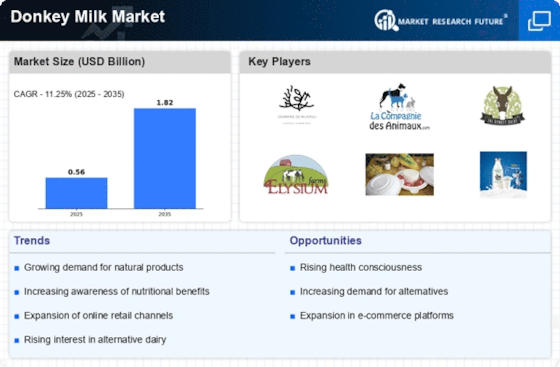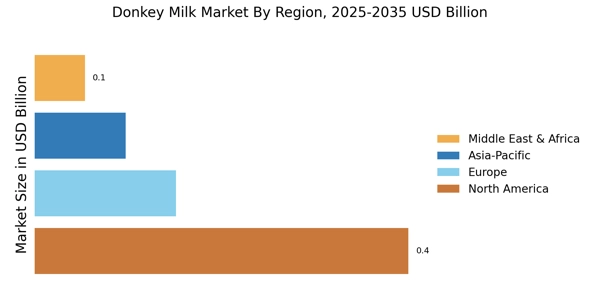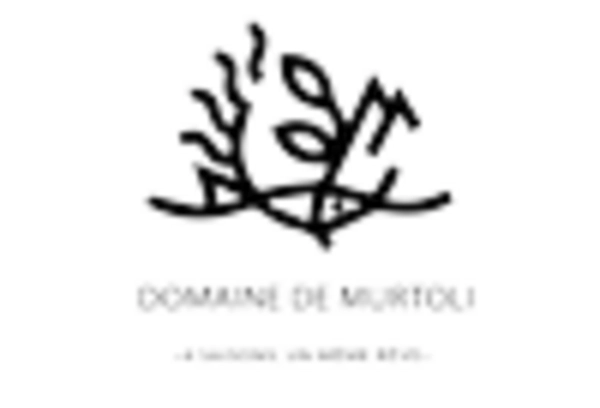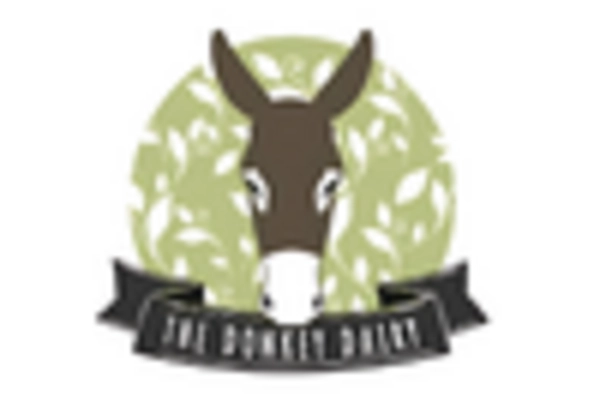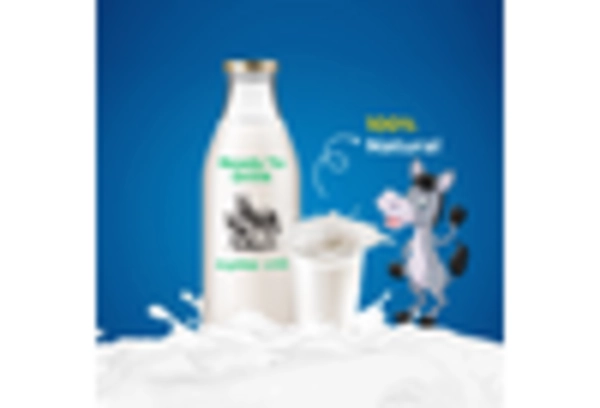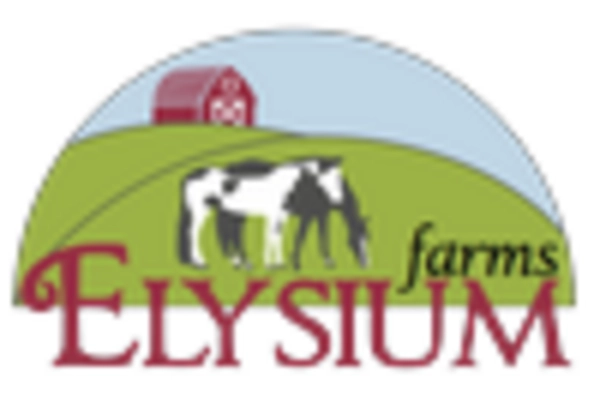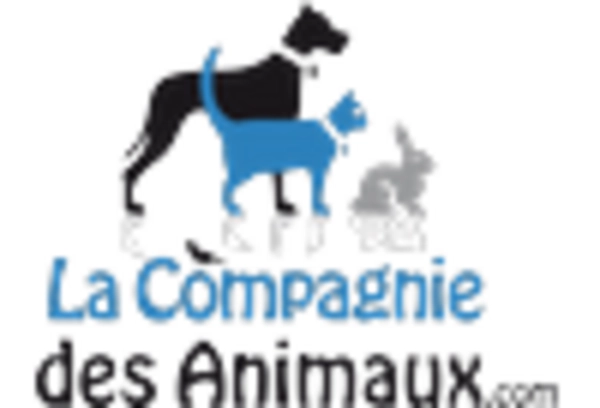Expansion of E-commerce Platforms
The expansion of e-commerce platforms is transforming the way consumers access products, including those in the Donkey Milk Market. With the increasing prevalence of online shopping, consumers can now easily purchase donkey milk and related products from the comfort of their homes. This trend is particularly beneficial for niche products like donkey milk, which may not be widely available in traditional retail outlets. Recent statistics suggest that e-commerce sales in the food and beverage sector have surged, indicating a shift in consumer purchasing behavior. As more consumers turn to online platforms for their grocery needs, the Donkey Milk Market is likely to see enhanced visibility and accessibility, driving further growth.
Nutritional Benefits of Donkey Milk
The rising awareness of the nutritional benefits associated with donkey milk is a key driver in the Donkey Milk Market. Rich in vitamins, minerals, and proteins, donkey milk is often considered a healthier alternative to cow's milk. It contains high levels of vitamin C, calcium, and omega-3 fatty acids, which are essential for overall health. This has led to an increase in demand among health-conscious consumers. According to recent data, the nutritional profile of donkey milk is believed to support immune function and promote skin health, making it appealing to a wide demographic. As consumers increasingly seek natural and nutritious food options, the Donkey Milk Market is likely to experience sustained growth, driven by these health benefits.
Cultural and Historical Significance
The cultural and historical significance of donkey milk in various regions contributes to its appeal in the Donkey Milk Market. In some cultures, donkey milk has been used for centuries for its purported health benefits and is often associated with traditional remedies. This cultural heritage can enhance consumer interest and trust in donkey milk products. Additionally, as consumers become more interested in authentic and traditional food sources, the historical context of donkey milk may serve as a marketing advantage. The unique story behind donkey milk, combined with its nutritional benefits, positions it favorably in a market that increasingly values heritage and authenticity.
Growing Interest in Alternative Dairy Products
The growing interest in alternative dairy products is a notable driver for the Donkey Milk Market. As consumers seek alternatives to traditional dairy due to lactose intolerance, allergies, or dietary preferences, donkey milk presents a viable option. It is naturally lower in lactose compared to cow's milk, making it suitable for those with lactose sensitivity. Market Research Future indicates that the alternative dairy segment is expanding rapidly, with consumers increasingly exploring diverse options. This trend is likely to propel the demand for donkey milk, as it is perceived as a unique and nutritious alternative that caters to a variety of dietary needs.
Rising Demand for Natural and Organic Products
The trend towards natural and organic products is significantly influencing the Donkey Milk Market. Consumers are becoming more discerning about the ingredients in their food and beverages, favoring products that are free from artificial additives and preservatives. Donkey milk, often produced in small batches and with minimal processing, aligns well with this consumer preference. Market data indicates that the organic food sector has seen substantial growth, with many consumers willing to pay a premium for products perceived as healthier and more sustainable. This shift towards organic and natural products is expected to bolster the demand for donkey milk, as it is often marketed as a pure and wholesome alternative to conventional dairy.


